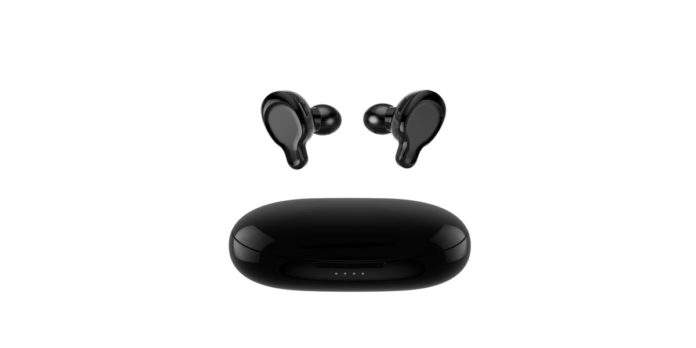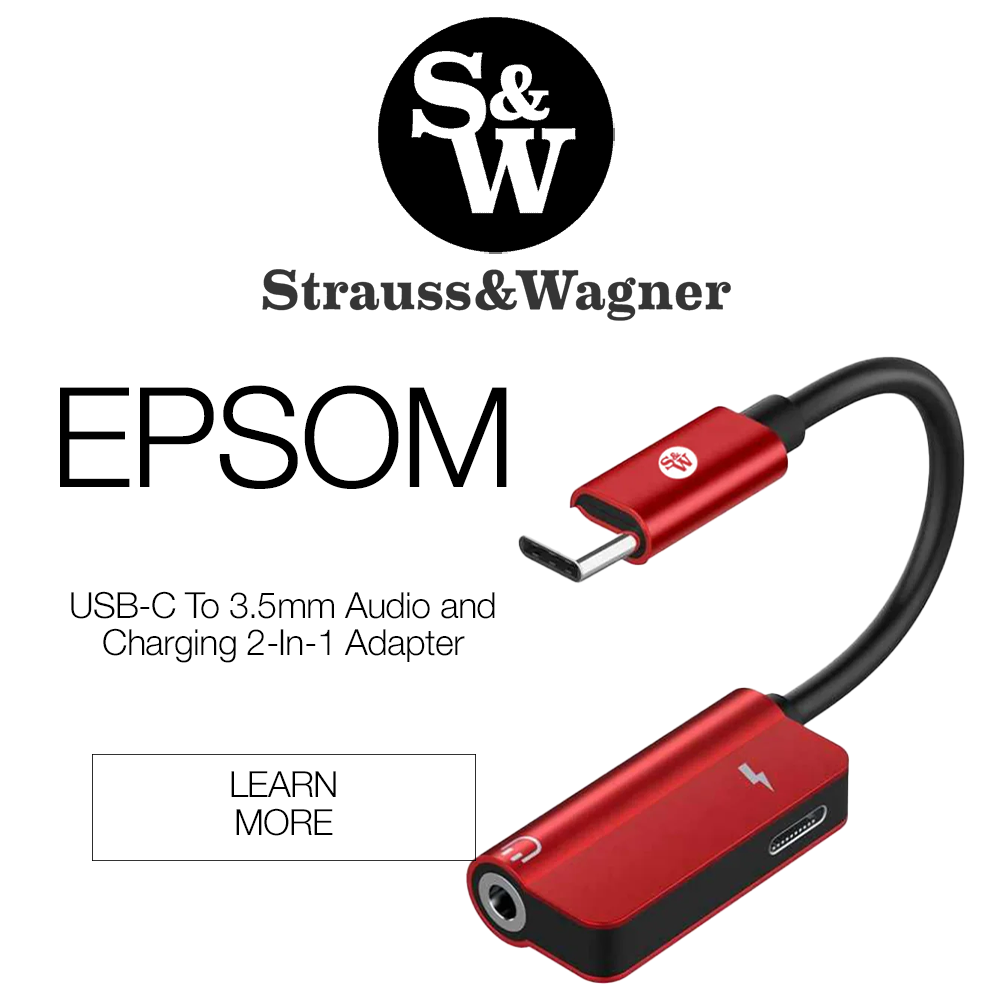As true wireless earphones continue to evolve, new models seem to pop up everyday. Even big brands like Sennheiser, RHA, and Audio Technica weigh in with hardy options and impressive sound. But small manufacturers continue to push the technological boundaries, offering fresh new takes on this still-emerging market. The Surge Club Surge Mini constitutes a prime example of this new earphone, exhibiting great battery life, excellent fit, and a surprisingly great sound. And all of this at a $49 price point.
Surge Club Surge Mini Review
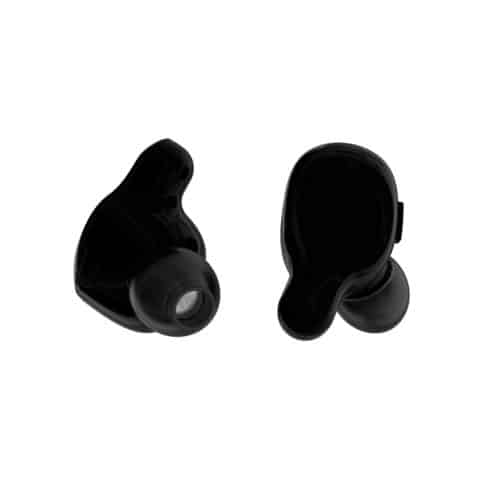
The Surge Mini comes in a fairly plain cardboard box with the earphones, charging case, micro-USB cable, and four pairs of eartips.
At first glance, these earphones may appear oddly-shaped, but the design of the Surge Mini relies on the natural contours of your ear to maintain a snug fit. Interchangeable tips also ensure a fit that doesn’t just fit well, but one that offers the best sound quality, too.
Additionally, the Surge Mini earphones sport an IPX7 rating, making them waterproof, sweatproof, and dustproof.
Surge Club doesn’t beat around the bush regarding the technology, either, proudly touting the inclusion of Bluetooth 5.0 technology and support for the AAC codec. Despite this commitment to a codec designed for lossy formats (like the songs you purchase off of iTunes), the sound quality still holds up…and then some.
Auto-pairing straight out of the case is painless, quick, and easy. Connection strength also appears quite good, with few drops in quality even during my most arduous street tests. Control buttons on either earpiece allow the user to adjust playback and certain phone functions, like accepting or rejecting a call. And the earphones can be individually powered off via pressing these buttons, allowing them to be used as single earpieces.
The included charging case adds a whopping 96 hours of battery life to the earphones’ on-board 4-hour battery life. At 2000 mAh, the charging case also doubles as a portable power bank. And the sleek black case that came with my review sample looks at home on a work desk or jammed inside a messenger bag. It charges relatively quickly even if it feels a little cheap.
In terms of internals, the Surge Mini rocks a 6.1 mm dynamic driver – helping to deliver a sound I routinely hear in $100 earphones like the Shure SE215 or the Sennheiser HD 1 In-Ear.
Specifications
Frequency Range: NA
Nominal Impedance: NA
Sound Pressure Level (SPL): NA
Surge Club lists some details regarding specifications on their Indiegogo Page, but doesn’t include the Big Three specs that MajorHiFi really looks at. However, I’d place the frequency range at a standard 20-23,000 Hz. Nominal Impedance can’t be more than 32 ohms, as with any other true wireless earphone. Lastly, Sound Pressure probably lands close to 108 dB – these things are surprisingly loud, and when you combine this with a sound-isolating fit, you get great volume in any environment.
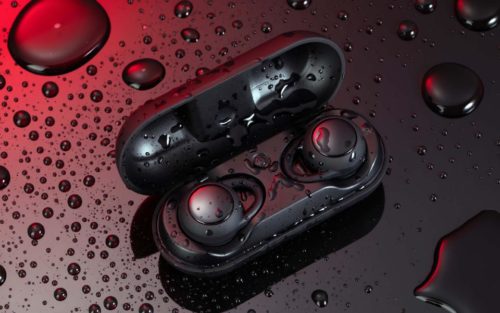
Low End
The Surge Mini delivers a rousing performance here. With strong detail and good control, the low end handles intricate tracks with ease. A strong (but not too boomy or sloppy) bass rounds out the low end, adding some serious punch to the sound. All in all, this strikes me as an impressive low end ideally situated to handle rock, hip-hop, electronica, and some pop.
Midrange
Usually the weak point in cheaper earphones, the Surge Mini does an excellent job here. On vocal-heavy tracks, it’s all too plain that this is a forward-leaning midrange, allowing the listener to pick apart the finer nuances of an artist’s voice. But instrumentation also comes across surprisingly well, with a decent level of fidelity. The result is a meaty, full sound with real substance – a thick and luscious sound that seems to stick in my ears.
High End
Where the high end is concerned, the Surge Mini seems slightly rolled-off, leading to a smoother listening experience. As such, stringed instruments like violins never get too piercing or uncomfortable, and female vocals sound especially svelte. But detail isn’t lost, and this should bear keeping in mind. Most earphones at this price range would clip some of that detail, or just compress it to the point where you wouldn’t notice. The Surge Mini keeps that detail, and delivers it clearly. As a result, this isn’t just a great high end for pop or rock music, but for classical and acoustic jams as well.
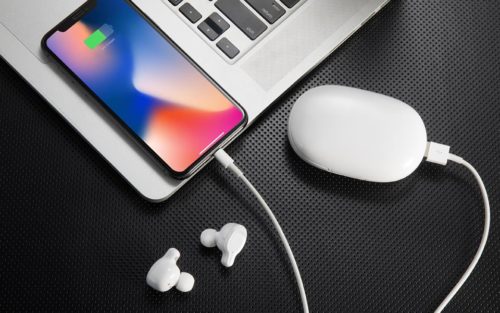
Soundstage
These tiny true-wireless buds actually have a sense of soundstage. Most earphones don’t. But on the Surge Mini, music sounds deeper and more three-dimensional. The result is an impressive, mesmerizing sound that grabs your brain and demands attention. For a true wireless earphone running the AAC codec, this sound remains nothing short of phenomenal.
Other Observations
The AAC codec support will probably turn off a lot of audiophiles. A small amount of compression appears when I play lossless files, but this is forgivable. On lossy tracks like MP3 and AAC files, the AAC codec proves more than capable and sound shows no compression or real loss of detail. For most folks, the Surge Mini will still impress with its robust sound quality.
And, speaking of sound quality, the Surge Mini shows itself to be more than a competitive offering. No other true wireless earphone at this price sounds this fine. And the sound quality routinely challenges earphones that cost two times as much.
Some quirks are present in the Surge Mini, though, and this earphone isn’t exactly perfect. While the controls seem comprehensive, they may be a little less intuitive. I was able to accidentally turn off one earpiece during one of my test sessions, but this was easily fixed by powering the other earpiece off and then turning them back on at the same time.
Call quality is actually pretty good. Despite a slight tinniness to my voice, the sound here retains a good amount of quality, and you won’t have to worry about garbled or faint phone calls.
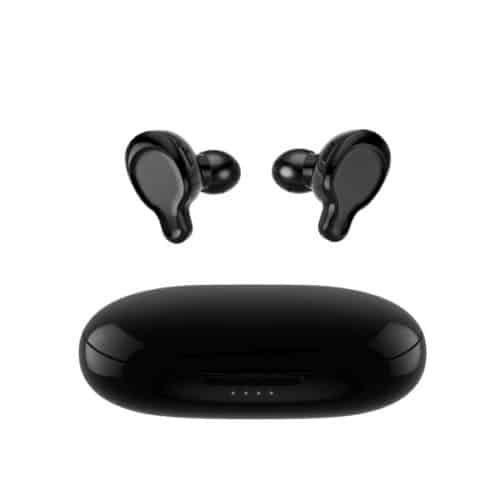
Recommendations
The Surge Mini totes an MSRP of $99, but folks who back the Indiegogo campaign in the next 16 days can score these at a low $49. At either price this earphone falls nothing short of a steal, and you’d be hard-pressed to find a better-sounding true wireless earphone at this price.
Indeed, the next model up in terms of price and performance would be the RHA TrueConnect – but at $169, this option offers significantly less bang for your buck. With a richer bass, and more detail throughout, the TrueConnect is a more audiophile-grade wireless offering and would be my go-to recommendation for folks who primarily listen to lossless files.
That being said, there’s nothing of note to stack up against the Surge Mini. Thanks to its exceptional battery life, astounding sound quality, and great build quality, this earphone stands apart from the crowd as a fantastic piece of machinery.
Final Analysis
The low $49 price tag of the Surge Club Surge Mini may seem like just another cheap true wireless earphone, but nothing could be further from the truth. This hard-hitting, comfortable-fitting, insanely-durable earphone proves that less money doesn’t always equate to a lesser sound. In my experience, this is the best sounding true wireless earphone I’ve heard at any price below $169. My advice? Score a pair of these at the lowest price while you still can.
Check out Surge Club’s Indiegogo campaign here:
MAJORHIFI may get a commission from retail offers.
MAJORHIFI may receive commissions from retail offers.


